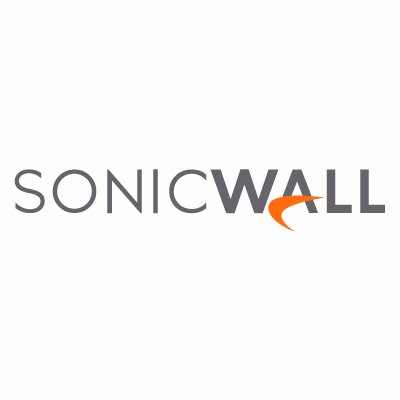SonicWall today announced the latest additions of its Generation 7 cybersecurity evolution, the largest in the company’s 30-year history. Driven by this innovation, SonicWall unifies cloud, virtual and hardware offerings across a single and fully integrated cloud-powered platform.
SonicWall’s achievement is marked by the introduction of three new high-performance firewall models — NSa 5700, NSsp 10700 and NSsp 11700 — designed to protect the largest and most complex enterprises, government agencies and MSSPs from advanced cyberattacks, including ransomware and never-before-seen malware, without sacrificing network performance.
“More than two years ago, SonicWall set out to evolve its cybersecurity portfolio to meet the diverse needs of our customers and partners across a variety of complex on-premises, hybrid cloud and multi-cloud environments,” said SonicWall President and CEO Bill Conner.
“As a sign of that commitment, we’re proud to announce the completion of a unified foundation that helps protect our customers with more simplicity, flexibility and cost-effectiveness than ever before. As always, our mission remains protecting our loyal users, organizations and data, no matter the environment. This is the next phase of many in exceeding those objectives.”
The company’s most advanced cybersecurity offerings couldn’t come at a better time. SonicWall Capture Labs recorded a 148% increase in global ransomware attacks through the third quarter of 2021. With 495 million ransomware attacks logged by the company this year to date, 2021 will be the most costly and dangerous year on record.
All 17 Virtual, Physical Firewalls Managed from the Cloud
The company’s advanced collection of 17 virtual and physical firewall offerings on the Generation 7 platform ensure that organizations of any size — in any industry — are all able to implement SonicWall’s Boundless Cybersecurity model.
SonicWall’s entire line of TZ, NSa, NSsp and NSv (virtual) firewalls can be quickly managed by the cloud-native Network Security Manager (NSM), which gives distributed enterprises a single, easy-to-use cloud interface for streamlined management, analytics and reporting.
“An increasing number of our customers in the APAC region have adopted cloud-based data storage solutions as a result of switching to a hybrid work environment. However, this has left them vulnerable to cyber and ransomware attacks,” said Debasish Mukherjee, Vice President of Sales, APAC, SonicWall. “SonicWall’s centrally managed cloud-delivered console has helped them to safeguard against potential threats with its powerful firewalls, combining the performance of their cloud, virtual and hardware security offerings.”
“As a long-time SonicWall partner, we’ve witnessed first-hand the innovation the company has made to their end-to-end platform and the impact it’s made in how we protect our customers,” said Sebastian Lindner, Managing Director, TARADOR GmbH. “SonicWall built years of trust with the heritage of their powerful firewalls, but now has transformed the price-to-performance ratio with more cloud, virtual and hardware security offerings that can be managed, together, from a single cloud-delivered console.”
New NSsp Models Push Security, Performance Thresholds to Protect Complex Hybrid Environments
The new SonicWall NSsp 10700 and NSsp 11700 firewalls are designed to protect enterprise-class networks — as well as provide more powerful options for MSSPs — by delivering up to four times the threat protection of previous-generation SonicWall offerings. This includes high marks for firewall throughout (42 Gbps for the 10700, 47 Gbps for the 11700), threat throughput (27, 35 Gbps), IPS (28, 37 Gbps) and VPN performance (23, 27 Gbps).
The NSsp 10700 and NSsp 11700 both offer 100G, 25G and 10G connectivity, delivering multi-gigabit threat protection for large environments. These higher port densities, coupled with hardware redundancy and high availability, allow distributed enterprises and large government agencies to purchase fewer appliances while supporting more secure connections as their networks grow.
With the addition of the new NSsp models, SonicWall now offers four government- and enterprise-grade firewalls: NSsp 10700, 11700, 13700 and 15700. This variety gives large organizations choice when scaling high-performance security — up to 105 Gbps of firewall throughput on the NSsp 15700 — for even the most demanding and complex environments.
Complete, TCO-Friendly Security for Mid-Range Businesses
To help mid-range businesses and organizations manage total cost of ownership (TCO) during challenging times, SonicWall also announces the new NSa 5700, the final addition to the company’s Generation 7 evolution.
SonicWall NSa firewalls serve as the security backbone of hybrid environments and complement virtual SonicWall security offerings. This helps organizations cost-effectively deploy, protect and manage multiple or distributed locations without exceeding CapEx limits.
Similar to the new NSsp offerings, the new NSa 5700 accelerates secure network performance with new standards in firewall throughput (28 Gbps) and threat prevention throughput (15 Gbps) — more than four times the previous comparable SonicWall appliances. This improvement is complemented by similar increases in IPS (17 Gbps) and VPN (15 Gbps) speeds.
Stop Advanced Cyberattacks, Ransomware with Capture ATP and RTDMI
Armed with any of the latest TZ, NSa, NSsp or NSv firewalls, organizations can instantly harness the power provided by the multi-engine Capture Advanced Threat Protection (ATP) sandbox service to stop today’s most advanced cyberattacks, including ransomware.
Capture ATP includes patented Real-Time Deep Memory InspectionTM, which together posted a ‘perfect score’ during the ICSA Labs Advanced Threat Detection Q3 2021 certification testing — and with no false positives. This was the third straight perfect score from Capture ATP and the seventh consecutive ICSA Labs ATD certification overall.
The company’s RTDMI™ technology discovered 307,516 never-before-seen malware variants (+73%) during the first three quarters of 2021, with an average of 1,126 discoveries per day.


